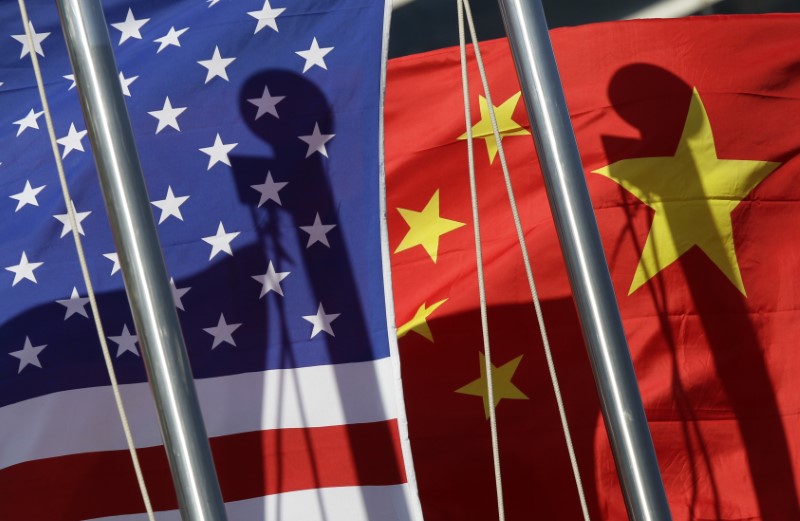TSX higher on employment data
Investing.com -- The U.S. push to reduce its economic dependence on China remains incomplete, according to Societe Generale (OTC:SCGLY) strategists, who argue the process of "de-risking" is proving longer and more complex than anticipated.
In a Wednesday report, SocGen outlines four motivations behind U.S. president Donald Trump’s renewed tariff push: generating revenue for an expected tax bill, encouraging domestic investment, shrinking the trade deficit, and gaining leverage in trade negotiations.
Trump’s first trade war in 2018 did not move the dial on deficits,” strategists said, as the U.S.’s “share of exports did not increase whereas its imports as a share of GDP did.” Meanwhile, China’s exports were rerouted through countries like Vietnam and Mexico.
With new tariffs reaching as high as 104% on Chinese imports, the scope of the trade war appears broader this time. SocGen says the U.S. is also targeting countries such as Mexico and Vietnam indirectly, discouraging deeper trade ties with China.
“That the U.S. has unfinished business ‘de-risking’ China has been our long-standing view,” the strategists wrote.
China’s share of U.S. imports has dropped from over 20% in 2018 to 13%, with countries like South Korea and Japan each accounting for just 4-5%.
Still, sectors such as technology and consumer cyclicals remain heavily exposed to Asia, with tech alone having around 40% supply chain exposure to the region.
SocGen expects this geopolitical overhang to weigh on U.S. equities, particularly those with global exposure.
They forecast the S&P 500 will trade within a 4,600–5,500 range in a downturn scenario, depending on U.S. Treasury yields. “Each 10% tariff has a c.2.8% impact on profits and this should worsen incrementally with higher tariffs,” they said.
In this environment, SocGen recommends focusing on domestic themes. Their U.S. reshoring beneficiary index (SGIXUSRE) has outperformed the S&P 500 this year, and they see continued leadership in baskets with limited overseas exposure.
